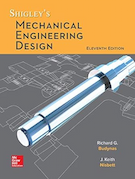Navigating Challenging Situations in Engineering Ethics
Engineering is a field that demands a high level of professionalism, and engineers are expected to adhere to a code of ethics that upholds the highest standards of integrity and responsibility. However, even the most ethical engineers can find themselves in challenging situations that test their moral and ethical principles. Understanding and navigating these situations is essential for engineers to maintain their professional reputation and make the right decisions in their work.
Ethical Dilemmas
Ethical dilemmas can arise in a variety of situations, including conflicts of interest, unequal distribution of resources, and issues related to safety, privacy, and environmental responsibility. Navigating these challenges requires a clear understanding of ethical principles and a commitment to making decisions that align with your values and beliefs.
Public Health & Safety
One of the key principles of engineering ethics is the obligation to put the public's health, safety, and welfare first. This means that engineers should always consider the potential consequences of their actions and decisions and prioritize the well-being of those who may be affected. For example, if an engineer is faced with a situation where a client is asking for a design that is not up to code and may pose a safety risk to the public, the engineer must have the courage to speak out and decline to participate in the project. In some cases, the engineer may need to consult with a professional organization or regulatory body to determine the appropriate course of action.
Honesty & Transparency
Another important principle of engineering ethics is the obligation to be honest and transparent. Engineers should always provide accurate information and be forthcoming about the limitations and risks associated with their work. This helps to maintain trust and credibility with clients, colleagues, and the public. In cases where an engineer discovers an error in their work, they should take immediate steps to correct the issue and notify any relevant parties.
Confidentiality & Sensitive Information
A related principle is the obligation to maintain confidentiality and protect sensitive information. Engineers may have access to confidential information as part of their work, and it's important to maintain the trust of clients and colleagues by respecting this information. For example, an engineer may need to decline to provide sensitive information to a third party, even if that means losing business.
Conflicts of Interest
In addition to these general principles, engineers may also face ethical dilemmas related to conflicts of interest. For example, and engineer considering a vendor for a specific component or service may be faced with the decision to place an order with a company owned by a spouse or relative as opposed to considering the full range of possible options. In these situations, it's important to carefully consider the potential consequences of your actions and make a decision that aligns with your values and beliefs.
Distribution of Resources
Another ethical challenge that engineers may face is the unequal distribution of resources. Engineers may be asked to design systems or structures that benefit some groups more than others, or that result in harm to marginalized communities. For example, an engineer may be asked to design a dam that will flood a rural community, resulting in the displacement of thousands of people. In these situations, it's important to consider the potential consequences of your actions and make a decision that prioritizes the well-being of all affected communities.
Tips to Navigate Ethical Dilemmas in Engineering
Here are some tips on how to navigate ethical dilemmas in engineering:
1. Know the code of ethics
Familiarize yourself with the code of ethics for engineers, as it provides guidance on ethical behavior and decision-making in the field. The code of ethics is a valuable resource for engineers, and it can help you make the right decisions when faced with ethical dilemmas.
2. Consider the consequences
When faced with an ethical dilemma, take the time to consider the potential consequences of each decision. Think about how your actions will impact others, including your colleagues, clients, and the environment. This will help you make a decision that is in line with your moral and ethical principles.
3. Seek guidance from colleagues
Another helpful tool for navigating ethical challenges is to participate in regular discussions with colleagues. Talking with others in the field can help engineers gain new perspectives on ethical issues and learn from others who have faced similar challenges. These conversations can also help engineers to build a network of support, and to seek guidance when they are unsure about how to proceed.
4. Seek out continuing education opportunities
Professional organizations and universities often offer courses and workshops that explore the ethical challenges that engineers face in their work and provide guidance on how to make ethical decisions. Attending these courses can help engineers stay up to date with the latest developments in the field and ensure that they are prepared to handle ethical dilemmas as they arise.
5. Seek guidance from organizations
Engineers can seek guidance from professional organizations and regulatory bodies. Many professional organizations have codes of ethics that provide guidance on how to navigate ethical dilemmas, and they may also offer resources and support to members who are facing ethical challenges.
6. Use the principle of justice
The principle of justice states that all people should be treated fairly and equitably, regardless of their status or background. When faced with an ethical dilemma, consider whether your decision will promote justice and fairness for all parties involved.
7. Document your decision-making process
Documenting your decision-making process can be valuable in the event of a challenge or investigation. Make sure to keep a record of the facts, ethical principles, and considerations that went into your decision.
Conclusion
Ethical dilemmas are a common challenge in the field of engineering. By understanding the key principles of engineering ethics, taking steps to prepare for ethical dilemmas, and being proactive in addressing ethical challenges, engineers can navigate these challenges with confidence and maintain the highest standards of integrity and responsibility in their work.
PDH Classroom offers a suite of online continuing education courses tailored to engineers. These courses can be used to fulfill PDH credit requirements for maintaining your PE license, or just as a part of staying ahead in your field.




